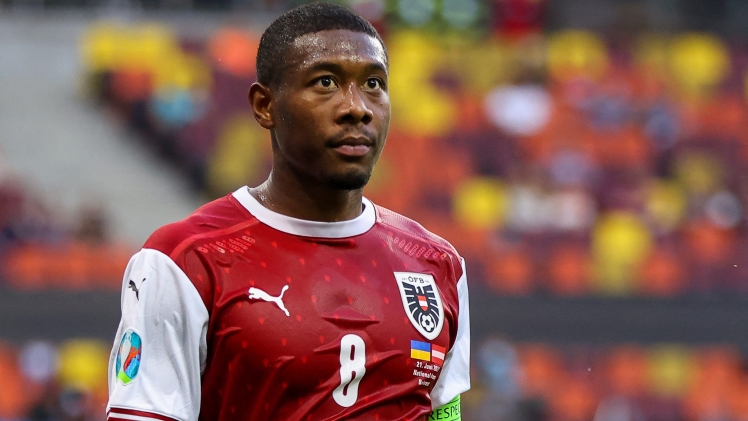This year, we are going to see a lot of changes in the world of football. The new FIFA rules and the new commercial agreements between football associations and the media owners will lead to a revolution in the way football is played and enjoyed. One of the first things that will change is the recruitment of new players. More specifically, there will be an emphasis on youth development, as well as the development of players with disabilities. Let’s take a quick look at how the 2019 summer transfer window will play out, and which clubs will be most affected by the new rules and regulations.
Stadiums Are Changing
One of the first things that you will notice this year is that football stadiums are changing. It seems that clubs and football associations are finally waking up to the idea that stadiums should reflect the contemporary society that follows the beautiful game. For decades, football stadiums have been a place where people of all colors, genders, and social backgrounds could come together. While it is still acceptable to play at a stadium that was built in the 1940s, the emphasis this year will be on stadiums that are designed to give the fans an experience that is closer to that of a boutique or luxury hotel. The new wave of stadium construction will also make room for increasing the number of clubs in the European leagues, as well as the increase of international matches. By the way, if you are betting on sports and want to get a bonus code, go to https://odds2win.bet/bonuses/nepal/22bet and collect your bonuses.
There are already a number of stunning and innovative new stadiums that opened in the last two years, including the Allianz Arena in Munich, the Ataturk Olympic Stadium in Istanbul, and the Stadio della Favorita in Palermo. These are just a few of the magnificent new stadiums that will open this year, and that alone is worth the extra travel time required for European fans to see their favorite club play. More about David Akaba you can read by the link.
The Impact Of The FIFA Rules
Even if you’re not a football fan, it’s important to know about the new FIFA rules. The new rules governing transfers affect almost every football club, as they have to register their players by June 30th of this year, or they risk forfeiting their right to sign players in the summer. The intention of the new rules is to limit excessive spending on new players, with restrictions on how much clubs can earn and spend. With fewer players to satisfy, the emphasis will shift to developing youth talent and promoting successful clubs. The impact of the new FIFA rules will be felt immediately, with transfers being the first thing to go through a major revision, due to the window sill closing on June 30th.
The new FIFA rules will limit how many players a club can have, as well as how many new players they can sign in the summer transfer window.
Signings And Sales
One of the most significant changes that will affect clubs this year is the increased emphasis on signing well-known players. As a result of the new FIFA rules, the window for signing players will be smaller, and the emphasis will be on youth development and promoting from within. This will likely lead to major staff changes in the football departments of clubs, as incumbent head coaches and managers have more to lose than gain from a smaller transfer window. The smaller transfer window means that there will be fewer opportunities to bring in high-profile players, and that those who do make the move usually have a better idea of what they’re getting into, as opposed to those who move during the transfer window, only to be disappointed when the player turns out to be less than exemplary. The new FIFA rules will also limit how much money a club can earn from player transfers in any given year, with clubs which breach these rules facing possible expulsion from the league.
Even more significant changes, however, will be felt by the larger clubs. Those who can afford to spend large amounts of money on players will be able to do so, while smaller clubs will be severely limited in the players that they can afford, and will be forced to make do with what they’ve got, or suffer the consequences. It is likely that we will see a major restructuring of European football, as smaller clubs will be unable to compete with the wealth of the larger clubs. Another crucial change that will be felt by the larger clubs is the increase in the length of contracts. In the past, a coach might only get one or two seasons to turn things around, at the most. Now, with more financial security and better coaching, longer-term projects are becoming a reality. The increased use of player analytics and data-driven decision-making make it easier to project players’ future potential, and this enables clubs to identify and pursue the best young players, rather than being forced to settle for what they’ve got.
Internationals Vs Europeans
Another significant change that will affect clubs is how the emphasis will shift from solely focusing on domestic leagues and competitions, to also including international tournaments. Just a few years ago, most international football fans had never even heard of the Carabao Cup, and would not have associated it with their favorite club. Times have changed, and this year, we will see the increased involvement of international fans in domestic football. The new FIFA rules regarding transfers allow a club to register a player for any given international match until the end of the season. This could potentially lead to a situation where a club’s entire season is split into two separate parts, with most of the action taking place in international matches, where the emphasis will be on entertaining the fans and giving them a good performance. This is great news for the game’s global growth, as it will expose more people to European football, which in turn will lead to more fans and greater interest in the beautiful game.
Even more significant is the fact that the new FIFA rules regarding internationals mean that European clubs can participate in international tournaments, with some of the world’s best players competing against full international teams. This has great potential to give rise to a new form of football, as teams will have to adjust their game-planning and tactics to take account of opponents’ full complement of stars, rather than being able to rely on the lesser lights in their own squad.
The Future
When you consider all the above, it’s easy to see how the 2019 summer transfer window will affect clubs, teams, and the game of football itself. Just a few years ago, transfers were seen as an essential part of the business of football, with much of the action taking place during the winter months. These days, the emphasis has shifted to developing youth talent and promoting from within. The new FIFA rules regarding transfers will make it much harder for smaller clubs to compete with the wealth of the larger ones. This, in turn, will have an impact on future developments in the game. A revolutionary summer transfer window awaits best mutual funds!

